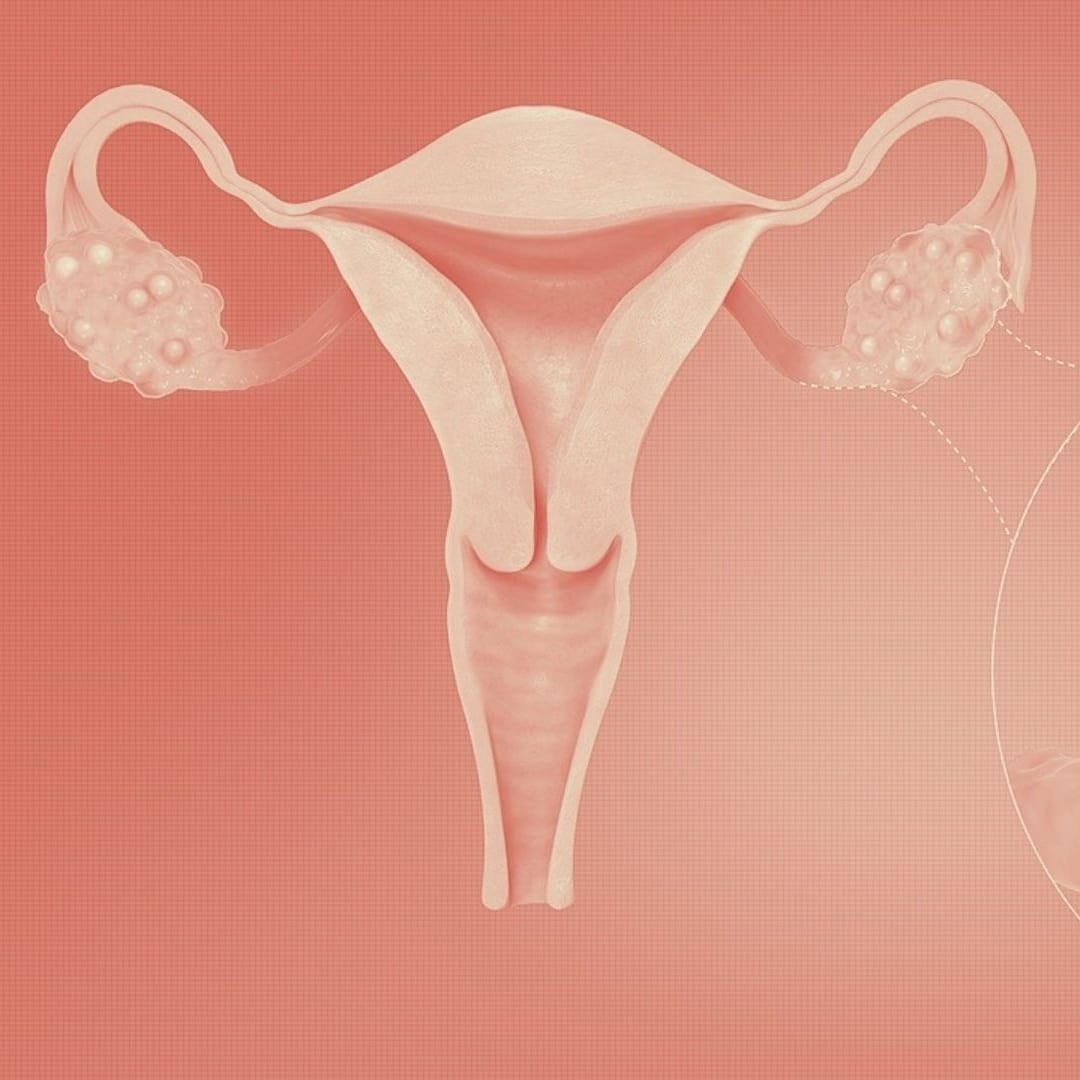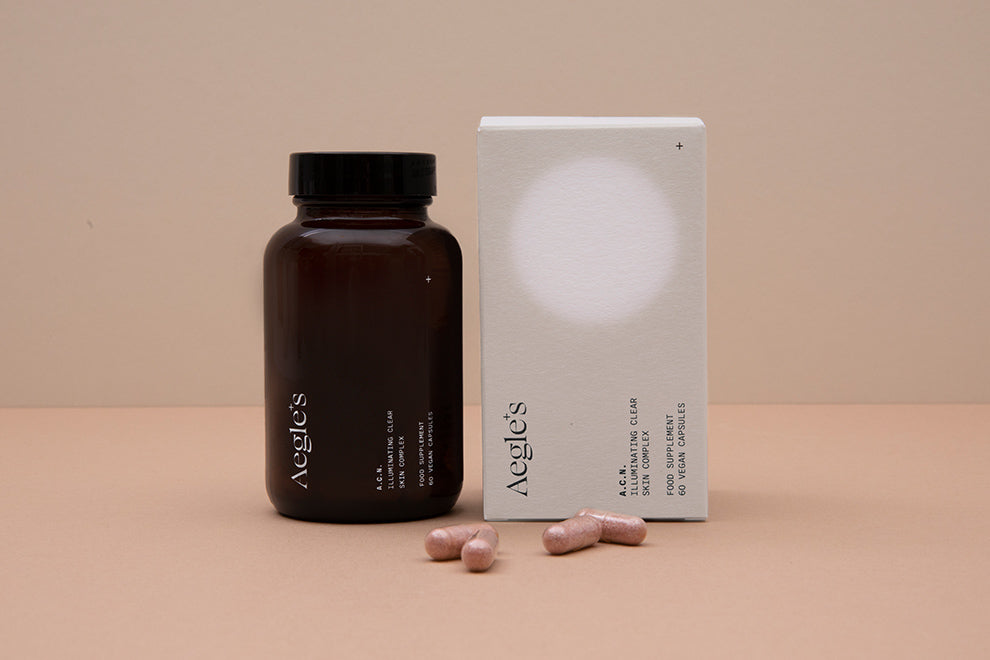

Polycystic ovary syndrome (PCOS) is one of the leading causes of chronic acne in women. But not all women with PCOS will experience acne. So let’s take a look at the link between PCOS and acne, and how and why it affects some women.
What is PCOS?
PCOS is not a disease, but rather a cluster of symptoms. It is an endocrine and metabolic disorder that can cause delayed or irregular menstrual cycles, excess bodily hair growth, alopecia, infertility, obesity and acne.
Women with PCOS are also at an increased risk of experiencing chronic anxiety and depression. As well as an increased risk of developing type 2 diabetes later in life.
As PCOS is an endocrine disorder, it only occurs in women between the ages of puberty and menopause. The exact cause of PCOS is not known. However, because the disorder runs in families, it is thought that the root cause may be due to a mutation of one or more genes.
Not all women with PCOS will have the exact same symptoms. It’s because of this variation in signs and symptoms, diagnosis is typically done through both an extensive hormonal test in addition to an ultrasound of the reproductive organs.
Assessing symptoms without any testing is definitely not sufficient enough for a correct diagnosis. As in fact, only 20-40% of women with PCOS will suffer from chronic acne. Interestingly, genetically the most dominant race to experience PCOS acne are Indonesian women.
PCOS and the female hormonal system
Women with PCOS have elevated levels of luteinizing hormone (LH), elevated androgens (specifically testosterone and DHT), low level progesterone, and low levels of follicular stimulating hormone (FSH).
This cocktail of hormonal imbalance causes the eggs within the follicles of the ovaries to not mature enough in order to prompt the ovulation process, preventing the release of the egg. As a result the follicles (fluid-filled sacs that contain the egg) collapse in on themselves forming a tiny cyst within the ovary. These cysts are noncancerous. In women with PCOS, there are often many of these tiny cysts on the ovaries.
PCOS and insulin resistance
Women with PCOS are typically insulin resistant. This means that their body is resistant to insulin, which results in high levels of circulating blood glucose.
Elevated insulin and blood glucose levels signal the ovaries to produce more testosterone. These elevated levels of testosterone then causes a higher production of the male sex hormone dihydrotestosterone (DHT), which is one of the leading causes of acne in adult women.
So it’s not the PCOS itself which causes the acne issue, rather the pathway of reactions in the body that are caused by the insulin resistance.
How PCOS causes acne
There are two hormonal imbalances in connection with PCOS that cause chronic acne in adult women:
- Elevated levels of DHT
- Low levels of progesterone
Women with PCOS typically have insulin resistance, which leads to elevated levels of the male sex hormone DHT. Elevated DHT is arguably the leading cause of chronic acne in adult women, so it’s this hormonal imbalance in particular which is the strongest connection between PCOS and acne.
Progesterone levels rise each month after ovulation occurs in a woman’s menstrual cycle. However, for a woman with PCOS ovulation often does not occur. This results in her progesterone levels remaining low.
Normal levels of progesterone help to reduce the sebum production levels in a woman’s skin in the days leading up to menstruation each month. So without adequate levels of progesterone her skin will likely be producing too much sebum during this time, and therefore have a higher chance of developing chronic acne.
Systemic inflammation
PCOS is associated with low-grade systemic inflammation. With acne being an inflammatory disease, any increased inflammation in the body can induce a worsening of the acne.
How to treat PCOS acne
As PCOS is not a disease there is no “cure” per se. However, successful treatment is possible through correcting the imbalances in the body that are caused by the disorder.
As it is usually high levels of androgens and insulin resistance that cause women with PCOS to experience acne, it is recommended to begin a PCOS treatment by balancing blood-sugar levels through a combination of diet and our Clear Skin Complex supplement. This will result in the fastest improvement of lowering the androgens to normal levels, and correcting the insulin resistance. Both which will provide the best chance at clearing the chronic acne.
Elevated levels of stress can contribute to and worsen symptoms of PCOS and insulin resistance. Women with PCOS are already likely to have elevated levels of cortisol (the stress hormone) and α-amylase (an indicator of psychological stress).
Chronic levels of elevated cortisol can worsen insulin resistance, weaken the immune system and lower levels of progesterone in the body. All of these imbalances contribute to a worsening of the severity of the PCOS.
It is therefore essential in any treatment regime of PCOS to also work on an ongoing stress management plan.
In conclusion
Whilst PCOS is one of the leading causes of chronic acne in adult women, having PCOS is not a guarantee that a woman will have an issue with acne.
Acne is often referred to as 'diabetes of the skin', and the link between PCOS and acne is not an exception to this reference. It is clear that there is a strong relationship between blood-sugar, PCOS and acne.

Start your journey to heal your skin now.
- Contains ingredients clinically proven to improve blemishes and skin radiance.
- Formulated by one of the world's leading skin practitioners.
- The only supplement that works for the three main causes of blemishes, blackheads and oily skin.






